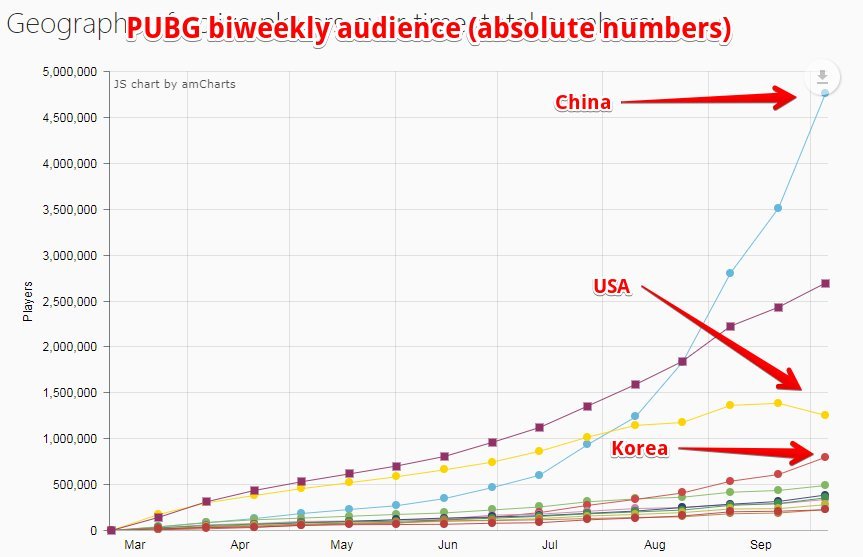PUBG has undoubtedly been the breakout hit of the year in the US, with PlayerUnknown’s Battlegrounds remaining one of the most played games on Steam in the West and one of the most popular games on Twitch. However, while the game passed an important milestone today when it achieved 2 million concurrent players in the US, absolute numbers showing its incredible surge in popularity in China reveal how the Battle Royale game has become a phenomenon in the region.
The numbers, outlined by Steam Spy, highlight the game’s tremendous growth over the course of the last three months. Heading into July, PUBG‘s biweekly audience in the country was around 600,000, while in the US it was just under 1 million. In August, both the numbers from China and the US were similar, with them both coming in at just under 1.5 million. However, from mid-August its player count in China skyrocketed, rising all the way up to nearly 5 million by the end of September. The US has stayed around the same mark, albeit declining slightly before heading into October.
Also: Fortnite Battle Royale vs PUBG: How Similar Are They and Which is Better?
Check out Steam Spy’s graph below, which also indicates Korea’s rising interest in the game (the purple line represents all other countries):

Those in the West often overlook the impact the Asian market has on overall game sales, but PUBG‘s numbers in China serve to highlight how big the PC market is in the region. With China’s biweekly audience providing PUBG with over double the number of players compared to the US, and with this number only increasing, the Battle Royale game is a true phenomenon in the country that shows no signs of slowing down.
While the US remains a vital region for PUBG, Bluehole will undoubtedly be looking to continue to expand its influence in Asia. However, the game recently faced some controversy in China after third-party advertisements began making their appearance, with an ad for a VPN system reportedly inserted into the game. According to complaints from players in China, their connections to the game had been steadily growing worse since the introduction of the advertisements, with the VPN system apparently one of few ways to ensure a smoother experience (via PCGamesN). Inevitably, Chinese players began tanking the game’s Steam reviews as a result, leading to Bluehole reversing the decision.
But despite this controversy PUBG continues to be a huge hit in China, and it remains to be seen just how much its audience will grow in the coming months. With its numbers having done nothing but increase over the course of the past few months, it’ll be interesting to see how its success in Asia compares to the US by the end of 2017.







